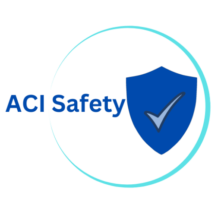If you run a small business, there’s a good chance you’ve heard of COSHH—but maybe you’re not quite sure who’s actually meant to be doing what.
Is it your job to write the COSHH assessments? Can you delegate it? Do employees have any responsibilities? And what happens if something goes wrong?
This post clears it all up. No legal waffle—just a straight answer to who’s responsible, what the law says, and how you can stay on top of it without it becoming a full-time job.
Let’s start with the basics: What is COSHH?
COSHH stands for the Control of Substances Hazardous to Health Regulations 2002. If you’re not totally clear on what that means, start with this quick introduction to COSHH or this beginner-friendly guide. Both explain the background in plain language.
The short version? COSHH is the law that says you have to control substances in your workplace that could harm people’s health. That includes obvious stuff like cleaning chemicals and solvents, but also things like dust, fumes, and even flour.
So who’s legally responsible for COSHH assessments?
The responsibility sits squarely with the employer. That means:
- Business owners
- Directors
- Senior managers (in some cases)
- Anyone who controls work activity involving hazardous substances
In a small business, that’s probably you.
It’s your job to make sure:
- COSHH assessments are carried out
- The risks are properly controlled
- Employees know how to work safely with the substances they use
Even if you ask someone else to help with the assessments (which is totally fine), the legal responsibility still rests with you. You can delegate the task, but not the accountability.
If there’s an accident, HSE won’t be asking who filled in the form. They’ll be asking what you did as an employer to protect your team.
Can someone else carry out the assessments?
Yes—but they need to be competent.
“Competent” just means they’ve got enough knowledge, training or experience to understand the risks and put suitable controls in place. That might be:
- A member of your team with the right know-how
- An external consultant (like me—I offer remote COSHH support for small businesses)
- Yourself, if you’ve taken the time to learn what’s needed
If you want a head start, you can download my blank COSHH assessment template. It’s designed specifically for small business use and guides you through everything step by step.
What are employees responsible for?
Employees have a legal duty too—but it’s more about following the rules than writing them.
Staff must:
- Use hazardous substances according to the training and instructions provided
- Wear any required PPE properly
- Report any issues, leaks, or exposure incidents
- Not mess about with safety controls (no propping open the fume hood!)
They should also read and understand the COSHH assessments relevant to their job. And that only works if you, as the employer, actually give them access to the assessments and explain them properly.
Training doesn’t have to be fancy. A simple briefing, toolbox talk, or walk-through is often enough—as long as it’s clear and consistent.
What if your business is tiny—like, just you or a couple of people?
COSHH still applies, even if you’re a one-person band or just have a few staff.
The law doesn’t care how big you are. If you’re using hazardous substances—even just cleaning chemicals or glues—you need to do the assessments.
And honestly, once you’ve done one or two, it’s not that bad. Especially if you’re using something like this COSHH template which makes it easier to stay organised and compliant without getting buried in paperwork.
What happens if you don’t do COSHH assessments?
Ignoring COSHH can land you in hot water with the HSE—and more importantly, it puts your team at risk.
Penalties can include:
- Fines
- Improvement or prohibition notices
- Prosecution, in serious cases
But even if the HSE never shows up, poor chemical safety often leads to:
- Skin irritation or dermatitis
- Respiratory problems
- Accidents and lost time
- Staff feeling unsafe or unhappy at work
It’s not just about avoiding fines. It’s about creating a safe place to work—which, let’s be honest, is also better for business.
If you’re unsure whether COSHH applies to your business, this post explains that in more detail: Do COSHH Regulations Apply to My Business?
Quick checklist: what you need to do as an employer
Here’s what you’re legally responsible for under COSHH: ✅ Identify hazardous substances
✅ Carry out COSHH assessments
✅ Put in place appropriate control measures
✅ Provide PPE (and make sure people use it properly)
✅ Train staff on how to use substances safely
✅ Store and dispose of substances safely
✅ Review assessments regularly and update as needed
If that sounds like a lot, don’t panic. A decent system (and a simple template) makes it much more manageable.
If you haven’t seen it yet, check out my COSHH Regulations 101 post—it breaks down exactly what the law says and what you actually need to do in practice.
Need help figuring out who’s doing what in your business?
Whether you’re a sole trader using cleaning products or a small team in a workshop using adhesives and oils, I can help you get your COSHH assessments sorted.
If you want to do it yourself, grab the template here. If you’d rather get someone to check your existing forms or walk you through it remotely, just give me a shout.
Small business. Big responsibility. But with the right support, it doesn’t have to be a headache.

